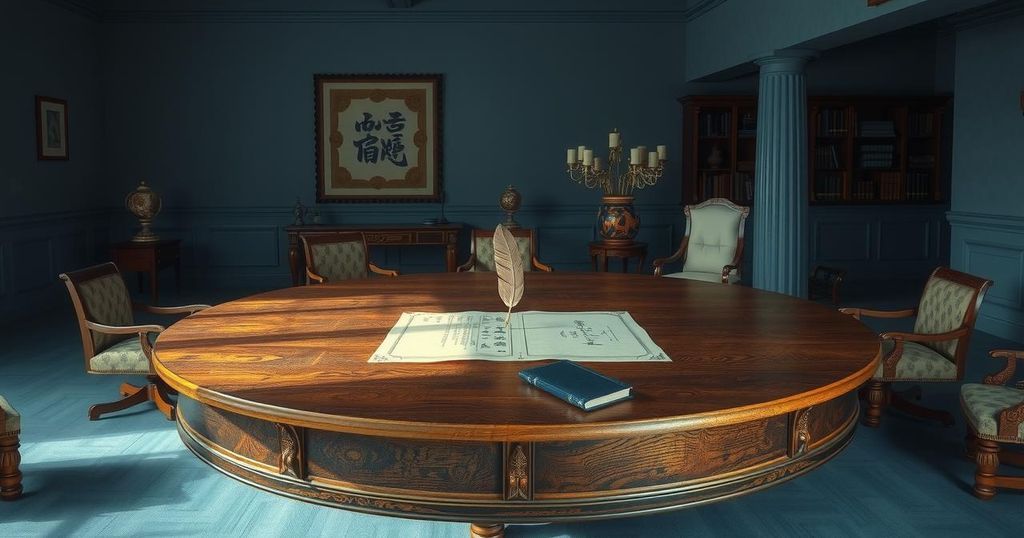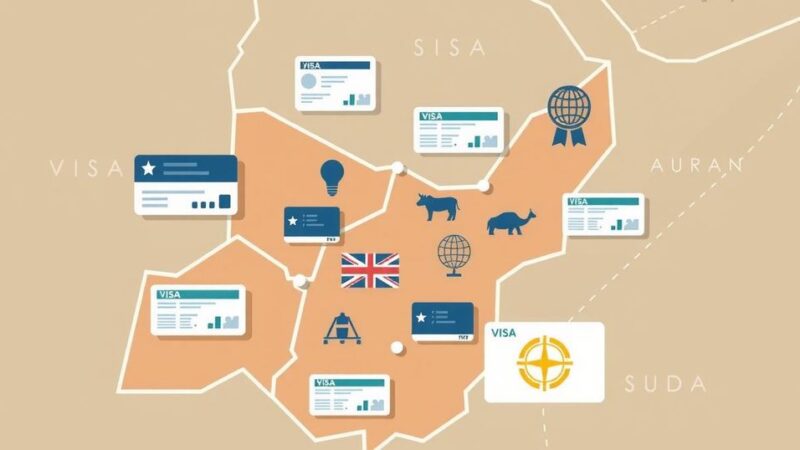Iran’s Foreign Minister stated that Trump’s nuclear talks letter appears to be more of a threat. Araghchi emphasized Iran’s thorough evaluation of the contents before a response. Trump has reinstated sanctions, complicating US-Iran relations. Khamenei and Iran’s foreign ministry emphasized rejection of negotiations under pressure from the US.
Iran’s Foreign Minister Abbas Araghchi commented on a recent letter from US President Donald Trump, asserting it serves more as a threat than an offer for dialogue. He noted that the Iranian government is currently reviewing the letter, which Trump sent to Supreme Leader Ayatollah Ali Khamenei on March 7, proposing new nuclear negotiations and warning of potential military action if Iran does not comply.
Khamenei has dismissed the US invitation to talks, labeling it a deceptive tactic to mislead global opinion regarding the willingness to negotiate. Iran’s foreign ministry plans to perform a comprehensive evaluation before addressing the communication, which a senior diplomat from the United Arab Emirates delivered on March 12. Araghchi indicated that the response would be channeled appropriately but did not provide specific details.
Reports from US-based news site Axios, citing official sources, revealed that Trump’s letter included a two-month ultimatum for reaching a new nuclear agreement. Following his return to the White House, Trump has reinstated a stringent sanctions policy against Iran, reminiscent of his first presidential term. He previously abandoned an important nuclear deal from 2015, prompting Iran to gradually reduce its commitments to the agreement after a year of compliance.
Efforts to rejuvenate the deal under President Joe Biden faced considerable hurdles, and Tehran has consistently expressed its unwillingness to engage in direct negotiations while enduring US sanctions. On Thursday, Araghchi reaffirmed Iran’s stance, emphasizing, “definitely will not negotiate directly while facing pressure, threats, and increased sanctions.”
Iran’s response to the letter from President Trump highlights the continued tension surrounding nuclear negotiations. Araghchi’s assertion that the letter poses more threats than opportunities underscores Iran’s reluctance to engage under current pressures. The political landscape remains complex, particularly given the historical context of US-Iran relations, sanctions, and the previously agreed nuclear deal from 2015.
Original Source: www.bssnews.net






